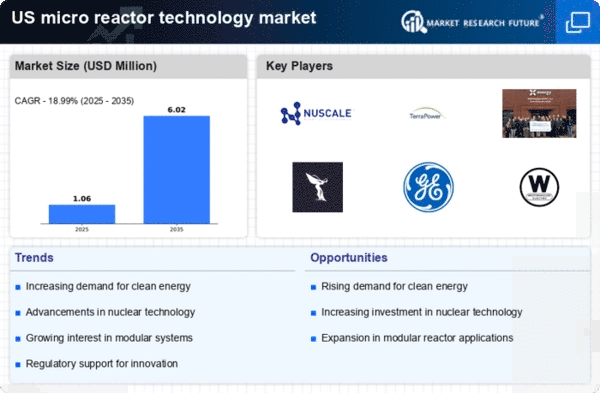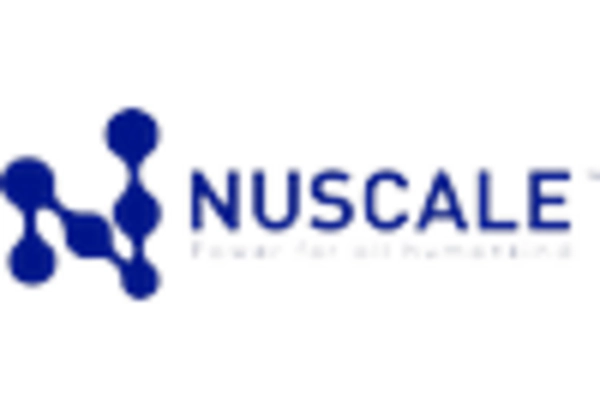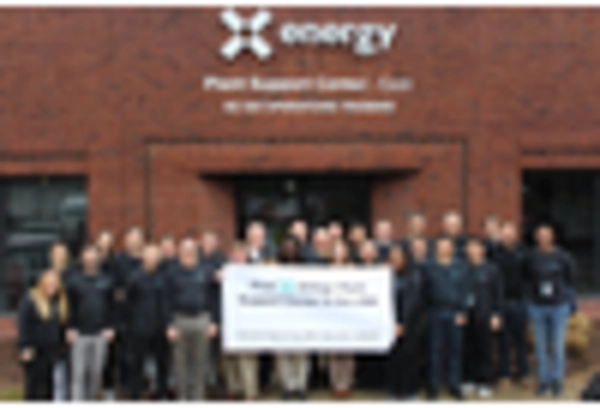Growing Interest in Energy Resilience
the micro reactor-technology market is experiencing growth due to the increasing interest in energy resilience.. As natural disasters and climate-related events become more frequent, the need for reliable and resilient energy sources is paramount. Micro reactors offer a decentralized energy solution that can operate independently of traditional power grids, providing a stable energy supply during emergencies. In the US, the Federal Emergency Management Agency (FEMA) has recognized the importance of resilient energy systems, leading to initiatives that promote the integration of micro reactors into disaster response strategies. This focus on energy resilience not only enhances community preparedness but also positions micro reactors as a critical component in the broader energy infrastructure. The potential for micro reactors to provide backup power in critical situations is likely to drive their adoption in both urban and rural settings.
Rising Demand for Clean Energy Solutions
The micro reactor-technology market is experiencing a notable surge in demand for clean energy solutions. As environmental concerns escalate, the need for sustainable energy sources becomes paramount. Micro reactors, with their ability to produce low-emission energy, align well with the growing emphasis on reducing carbon footprints. In the US, the energy sector is projected to invest approximately $100 billion in clean energy technologies by 2025, indicating a robust market potential for micro reactors. This shift towards cleaner energy not only supports environmental goals but also enhances energy security, making micro reactors a viable option for diverse applications, including remote power generation and industrial processes. The increasing focus on sustainability is likely to drive innovation and investment in the micro reactor-technology market, fostering a competitive landscape that prioritizes eco-friendly solutions.
Increased Focus on Modular Energy Systems
The micro reactor-technology market is witnessing an increased focus on modular energy systems. Modular reactors offer scalability and flexibility, allowing for tailored energy solutions that can be deployed in various settings. This adaptability is particularly appealing in the US, where energy needs can vary significantly across regions. The ability to deploy micro reactors in a modular fashion enables quicker installation and reduced capital costs, making them an attractive option for both urban and rural applications. Furthermore, the market for modular energy systems is projected to grow at a CAGR of 15% over the next five years, indicating a robust demand for such technologies. As industries and communities seek efficient and customizable energy solutions, the micro reactor-technology market is likely to benefit from this trend, positioning itself as a key player in the future energy landscape.
Technological Advancements in Reactor Design
Technological advancements play a crucial role in shaping the micro reactor-technology market. Innovations in reactor design, materials, and safety features are enhancing the efficiency and reliability of micro reactors. For instance, the development of advanced fuel types and modular designs allows for greater flexibility in deployment and operation. The US government has allocated significant funding for research and development in nuclear technologies, with an estimated $1.5 billion earmarked for advanced reactor concepts over the next few years. These advancements not only improve the performance of micro reactors but also address safety concerns, making them more appealing to potential investors and operators. As technology continues to evolve, the micro reactor-technology market is likely to witness increased adoption across various sectors, including defense, healthcare, and remote communities.
Support from Government Policies and Incentives
Government policies and incentives are significantly influencing the micro reactor-technology market. The US government has implemented various initiatives aimed at promoting advanced nuclear technologies, including micro reactors. These policies often include tax incentives, grants, and streamlined regulatory processes designed to encourage investment in innovative energy solutions. For instance, the Department of Energy has launched programs that provide funding for the development and demonstration of micro reactor technologies, with an investment of over $200 million planned for the next five years. Such support not only mitigates financial risks for developers but also fosters a favorable environment for research and commercialization. As these policies continue to evolve, they are likely to enhance the attractiveness of the micro reactor-technology market, encouraging more stakeholders to participate in this burgeoning sector.
















